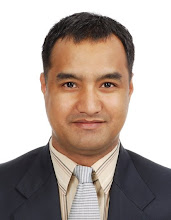By Jeevan Baniya
It is still fresh in the minds of Nepalese people that, during Jana Andolon II, various civil society actors played important role in a number of ways. Trade union groups and some progressive NGOs organized opposition movements against the King’s direct regime; some raised voices against human rights violations and created international solidarity and others like the members of Nepal Bar Association actively led protests demonstration. Media society and journalists extensively wrote against the suppressed freedom of speech and objected to the censor imposed by government authority on publications and broadcasting stations; and university and school teachers advocated for academic freedom. The Citizens’ Movement for Democracy and Peace (CDMP), an umbrella organization of civil society actors, brought together intellectuals and community leaders, which also lobbied and pressured the political parties to forge a collective campaign for democracy. No doubt, they infused new hopes among people and proved their strength to bring changes.
It is a fact that civil society activists were the frontrunners, energizing the pro-democracy movement when there was clear lack of public support for the movement that was carried out by the political parties. In this very respect, their contribution is invaluable. A common belief and agenda of democracy and freedom was a single motivating factor that brought all of these actors together to collectively fight against the royal regime. Some even argue that the then Seven Party Alliance (SPA) was the main force behind the success of the April uprising while the Maoists claim that it was possible only because they backed up the movement by mobilizing the mass from rural areas to cities.
Every actor had its own role in the people's movement though the degree of contribution may have varied. It is also important to note that the major political movements, as Chaitanya Mishra (2008) argues, were interconnected movements as one being instrumental to giving direction and inspiration to another. Whatever the claims, ruling out the significant role of civil society will not be justified.
Since then, the country has experienced diverse demands from various groups, which has complicated the process of writing a new constitution. However, the differences on the demands and expectations from these various groups are not unnatural as the formation of our societies itself is primarily plural. In this respect, the country is standing at the cross-road – it is either moving towards disintegration or towards rebuilding and reconstructing the country. If managed well, we can establish strong foundation for development, democracy and social justice. If it goes other way around, the situation might lead to disintegration, political instability and economic downfall.
In this pretext, the situation of the country calls for active and collective role of civil society to institutionalize the achievements made through the people's movement and to strengthen democracy by bringing diverse interests into consensus. There is an urgent need to reconcile and find a common ground where diverse and overlapping demands can be addressed. This is one area where the civil society is expected of an active role.
But as we have noticed, there is tension and conflict between various members and groups within civil society movement as they have different views especially after CA election, the civil society has been more silent, dispersed and divided. Civil society leaders seem to have been trapped in a narrow perspective of one political ideology or the other and they stand divided politically. This lack of cooperation and unity is very worrisome. Likewise, the contradictory positions taken by the civil society leaders over Maoist chairman Prachanda’s famous Saktikhor video episode, sacking of then chief of Nepal army Rukmangud Katawal and the move of the president to reinstate him overnight, and even over the republican setup -- all indicate that the division within the civil society is very complex.
But, despite the fact that leaders of civil society do articulate different views and beliefs on the implications of change, writing new constitution and reconstructing social, economic, cultural and political order in the country, it is necessary for the civil society to sharpen their strategies and ideas enabling the environment to reach these ends.
At this juncture, the country is in dire need of cooperation and regular interactions among various interest groups and mobilized communities to sketch the framework for a New Nepal.
Forging trust among civil society and movement leaders can be a crucial step for revitalizing their movement, which can mediate between various interests and demands of different groups in the society. This contribution will ease the situation to successfully write the new constitution in time. Such contribution will, for sure, not only help themselves to retain peoples’ trust towards them, it also will direct the country to the path of progress and peace.
It is about time that our civil society leaders played an effective role.
(Baniya is a PhD candidate at the University of Oslo, Norway. He can be reached at: baniyajeevan@hotmail.
This article was originally published in www.nepalnews.com
Sunday, January 10, 2010
Subscribe to:
Posts (Atom)
